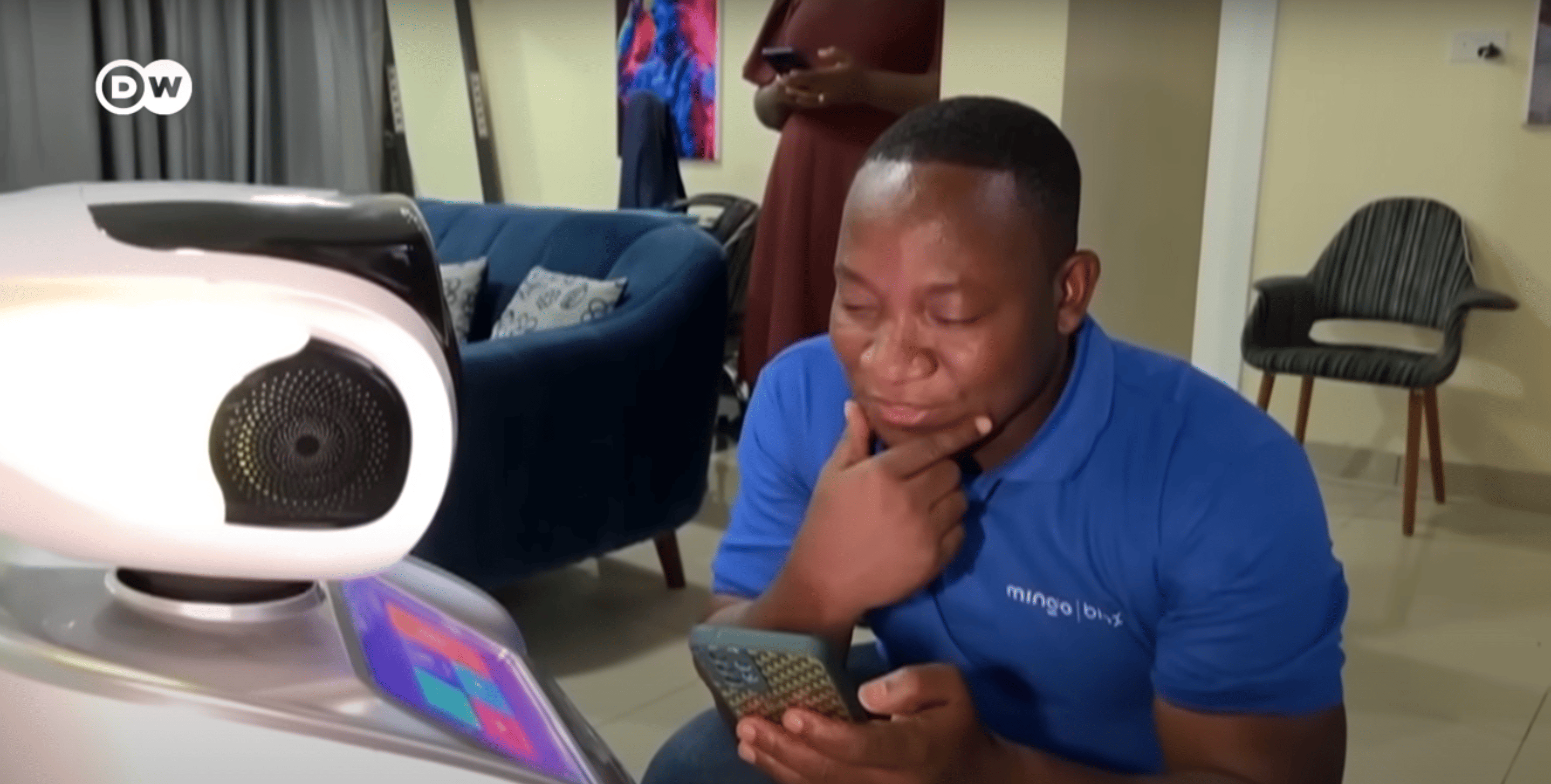Startups Spotlight: AI Startups in Africa

Rejoice Anodo
September 18, 2024

AI & Africa
According to a report on the state of artificial intelligence (AI) in Africa for 2023, prepared by the Centre for Intellectual Property and Information Technology Law (CIPIT), Africa has more than 2,400 AI operations operating across various industries, including health, wellness, fitness, farming, law, training, and insurance.
Countries with significant adoption rates include Nigeria, Kenya, Togo, South Africa, Ethiopia, Zimbabwe, Libya, and Ghana.
Despite existing challenges in development, African developers and tech companies have built AI-based applications and integrated them into existing tech products for Africans.
These are some AI African startups that have achieved significant milestones.
Ubenwa Health
Ubenwa Health is a medical research company that built Nanni AI, an AI-powered diagnostic application. It records baby cries and analyzes if the newborn child has birth asphyxia with the aid of machine learning. It provides rapid diagnosis for perinatal asphyxia, a condition ranked by the World Health Organization as one of the top three causes of newborn mortality in developing countries.
Ubenwa Health aims to bridge the gap of missed diagnoses during births in ill-equipped hospitals coupled with unskilled medical personnel. They have partnered with top hospitals in Brazil, Canada, and Nigeria to research various neurological and respiratory conditions affecting infants.
SunCulture
SunCulture is a Kenyan-based agrotech company that caters to the needs of small-scale farmers by providing them with solar-powered irrigation. It is an IoT solution that uses local sensors and cloud-based machine learning models to produce detailed recommendations for farm management.
The business model has since expanded to offer customers access to water, lighting, and mobile charging from a single purchased system. Intending customers can make purchases on a pay-as-you-grow basis. This covers consultation, training, and installment. SunCulture also offers its services in Uganda, Ivory Coast, Ethiopia, Zambia, and Togo.
How is AI being Utilized in Africa?
Jacaranda Health, a Kenyan medical non-profit concerned with maternal and neonatal needs, utilizes TRIage for Mothers Using AI (TRIM-AI) to analyze texts for potential danger. TRIM-AI was deployed in June 2022, and their system, called PROMPTS, has over 350,000 active users in Kenya alone and receives about 1.1 million messages monthly. In August 2024, Jacaranda Health partnered with eHealth Africa to expand PROMPTS to Nigeria.
Farmvibes.Bot is a Microsoft-owned chatbot that provides agricultural support for small farmers located in remote areas in Africa. It uses multimodal geospatial AI models to obtain insights for sustainable agriculture. It supports WhatsApp, SMS, and other messaging platforms. Farmvibes.Bot assists farmers in adopting data-driven precision farming techniques and is in use by over 500,000 farmers in Sub-Saharan Africa.
Dataprophet is an artificial intelligence company headquartered in South Africa that caters to manufacturers. It analyzes factory data to identify manufacturing defects and solutions for improved efficiency and yield.
M-KOPA uses the Microsoft Azure cloud ecosystem to generate daily forecasts for loan repayments. M-KOPA’s business model grants individuals access to devices such as smartphones on a credit basis. They are granted immediate ownership and payback through micro-installments. Established in Kenya in 2011, it expanded its reach to Ghana, Uganda, and South Africa. They have also added loans and health insurance to their retinue of services.
Zipline has utilized logistics to improve healthcare services in Africa by transporting blood and medical equipment to remote locations with drones. Its AI-enhanced drone technology ensures that it meets up with medical emergencies by analyzing the fastest routes. Zipline started by creating a pact with the Rwandan government in 2016. Zipline has spread to Nigeria, Kenya, Ghana, and Cote d'Ivoire.
Challenges of AI Startups in Africa
Startups in Africa experience difficulty accessing datasets required for training AI models. Due to the unavailability of structured data at regional and national levels, grey areas can cause lapses and hinder research.
Inadequate facilities for data storage, research and development, and high-speed internet services are exacerbated by electricity shortages. These often lead startups to source funding for privatized solutions.
Securing funding to achieve set milestones requires rigorous processes, heightened by unfavorable regulatory frameworks. Knowledge and skill gaps are constantly widening due to the immigration of skilled workers and minimal awareness of job opportunities in the AI sector for Africans.
These combined challenges have slowed down the progress of AI in the African tech sector, and reports have confirmed that 63% of AI startups in Africa are in the initial and intermediate stages of development.
Has Africa Benefited from AI?
AI development and consumption is still in its early days in Africa. Integrating AI into tech solutions has created job opportunities, with a focus on data science and AI engineering.
Ubenwa Health provides remote healthcare and reduces infant mortality rates. SunCulture helps farmers source affordable irrigation, and M-KOPA grants business owners low-interest percentages.
These startups, among others, have increased socio-economic development in African countries across several sectors. More innovation is expected as more time, effort, and resources are invested into AI development.
The Future of AI in Africa
African governments, tech-based companies, and the private sector must collaborate to create a thriving AI ecosystem. African-based AI startups need a healthy collaboration with African governments to expand and contribute to global conversations.
Improvements can be made including restructuring educational models to include STEM applications to increase AI awareness and sensitizing policymakers on the importance of AI.
This would create a supportive environment to support AI startups, attract investors, and promote research, creating a bubbling AI sector.


